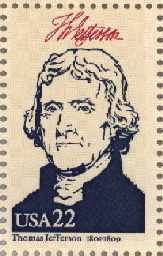
To St. John de Crevecoeur Paris, August 9, 1788DEAR SIR, -- While our second revolution is just brought to a happy end with you, yours here, is but cleverly under way. For some days, I was really melancholy with the apprehension, that arms would be appealed to, and the opposition crushed in its first efforts. But things seem now to wear a better aspect. While the opposition keeps at its highest wholesome point, government, unwilling to draw the sword, is not forced to do it. The contest here is exactly what it was in Holland: a contest between the monarchical and aristocratical parts of the government, for a monopoly of despotism over the people. The aristocracy in Holland, seeing that their common prey was likely to escape out of their clutches, chose rather to retain its former portion, and therefore coalesced with the single head. The people remained victims. Here, I think, it will take a happier turn. The parliamentary part of the aristocracy is alone firmly united. The Noblesse and Clergy, but especially the former, are divided partly between the parliamentary and the despotic party, and partly united with the real patriots, who are endeavoring to gain for the nation what they can, both from the parliamentary and the single despotism. I think I am not mistaken in believing, that the King and some of his ministers are well affected to this band; and surely, that they will make great cessions to the people, rather than small ones to the parliament. They are, accordingly, yielding daily to the national reclamations, and will probably end, in according a well tempered constitution. They promise the States General for the next year, and I have good information that an Arret will appear the day after tomorrow, announcing them for May, 1789. How they will be composed, and what they will do, cannot be foreseen. Their convocation, however, will tranquillise the public mind, in a great degree, till their meeting. There are, however, two intervening difficulties.
Your friend the Countess d'Houdetot has had a long illness at Sanois. She was well enough the other day to come to Paris & was so good as to call on me, as I did also on her, without finding each other. The Dutchess Danville is in the country altogether. Your sons are well. Their master speaks very highly of the genius & application of Aly, and more favorably of the genius than application of the younger. They are both fine lads, and will make you very happy. I am not certain whether more exercise than the rules of the school admit would not be good for Aly. I conferred the other day on this subject with M. le Moine, who seems to be of that opinion, & disposed to give him every possible indulgence. A very considerable portion of this country, has been desolated by a hail. I considered the newspaper accounts, of hailstones of ten pounds weight, as exaggerations. But in a conversation with the Duke de la Rochefoucaut, the other day, he assured me, that though he could not say he had seen such himself, yet he considered the fact as perfectly established. Great contributions, public and private, are making for the sufferers. But they will be like the drop of water from the finger of Lazarus. There is no remedy for the present evil, nor way to prevent future ones, but to bring the people to such a state of ease, as not to be ruined by the loss of a single crop. This hail may be considered as the coup de grace to an expiring victim. In the arts, there is nothing new discovered since you left us, which is worth communicating. Mr. Payne's iron bridge was exhibited here, with great approbation. An idea has been encouraged, of executing it in three arches, at the King's garden. But it will probably not be done. I am, with sentiments of perfect esteem and attachment, Dear Sir, your most
obedient and most humble servant, |
